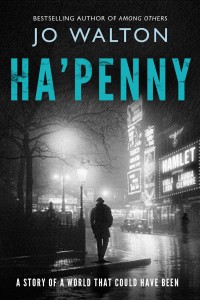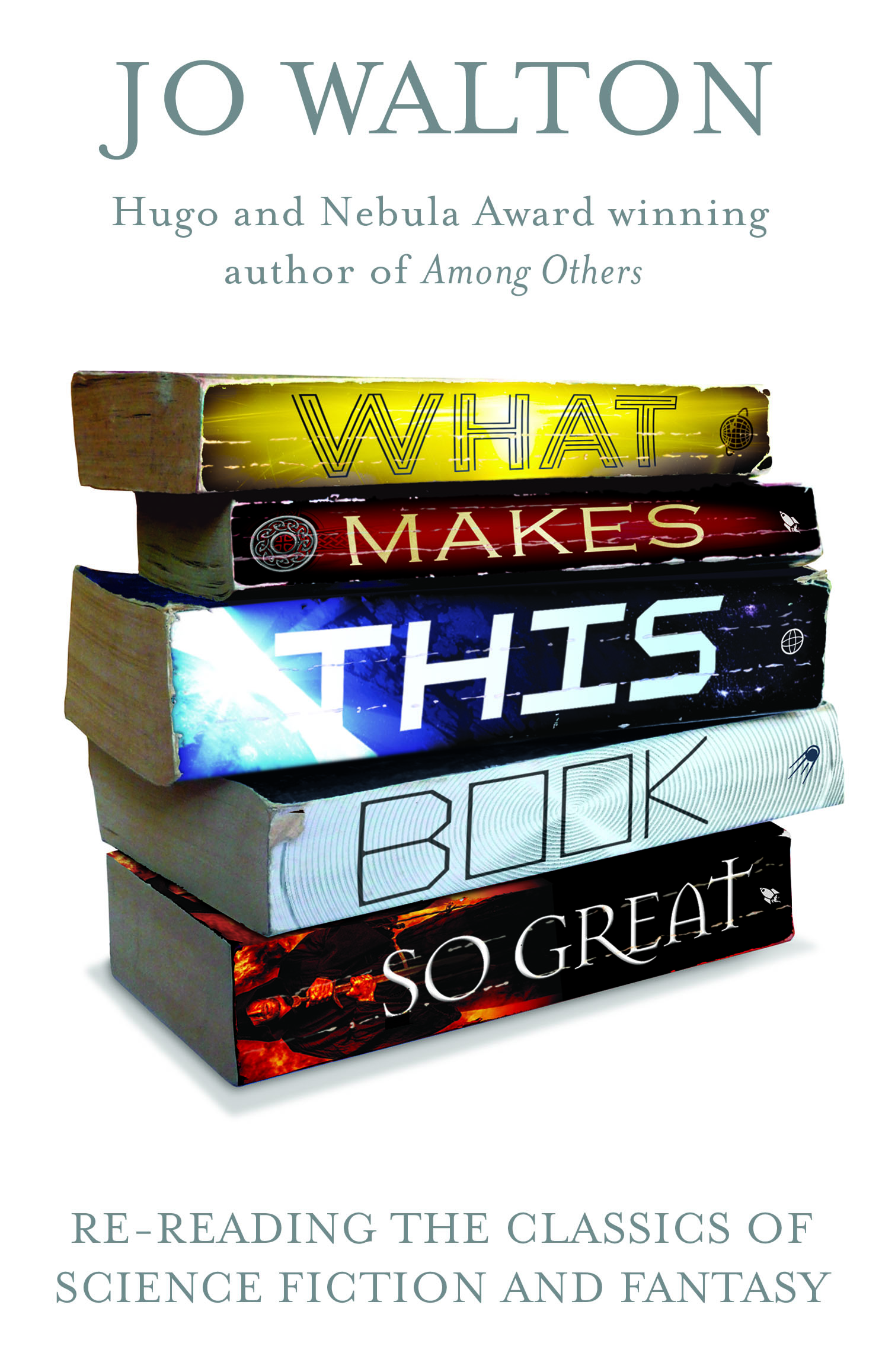Sarah Monette was writing in her journal about Bujold and Sayers, and what A Civil Campaign doesn’t do that Gaudy Night does, and a conversation following on from that.
There are genre conventions, there are subversions of genre conventions, and there are good intentions that get nowhere because there are genre necessities that don’t seem to allow them. The problem is that genre conventions dictate a whole lot of things about the shape of the possible story, and you have to get right outside that if the thing you want to talk about is something else, and when you get outside it you might have Gaudy Night but equally you might have a handful of shapeless mush because it is genre conventions that provide the support structure that stops everything happening at the same time and lets you have story.
Le Guin has been driving me mad for years by saying women’s work is important and showing it as being actually very dull with nothing happening. I wrote a poem about this which I posted on rasfw in May 2001 and shall reproduce here as it’s actually easier to type it in than work out the Google url properly:
You say there are no stories in happiness
only the fire burning, the bucket in the well,
the wind in the gables, the crops ripening.
You try to tell those stories and they fall in your hands
into unpatterned incident. The shape of doing
again what was done before is not story-shape
though you have tried and come close.
Stop and be quiet. Listen to the rustling.
Stop looking for invasions and evil wizards.
Until you can see the shapes that life makes
ripening into stories worth your telling
the words that you say are only air
and neither life nor stories have the value
your words say you set upon them.
But now I think about this in the light of A Civil Campaign and Gaudy Night and genre conventions, I wonder if it’s the genre conventions pressing too hard around the outside. I still think Always Coming Home would have been a much better story (would have been a story rather than what’s essentially a bizarre RPG worldbook) if it had been about someone middle aged and in love with someone not in love with them and their child coming towards their nameday and maybe an argument about what to do with a tree that had fallen down. But I don’t think that story was visible to her, even if I can see it as a possible way out of what she had. Kim Stanley Robinson did it with Pacific Edge, and Eleanor Arnason does it all the time. So it’s possible to do in genre. (McHugh too, though not always coherently. Really well, but that’s different.)
This may be why The Dubious Hills has such an absurdly simple plot, and a plot which, to me, thinking about the book, always comes as an afterthought. It’s drawing water and lighting fires and living quietly and a fascinating world, and it has plot because something has to happen in a story, dammit.
I don’t think I let genre conventions beat me bloody this time, but it’s very hard to be sure. I think maybe they did a bit in terms of how much more prominence my totally standard relationship gets over the others.



